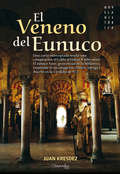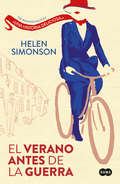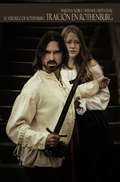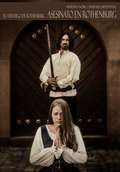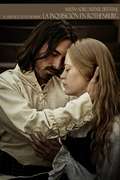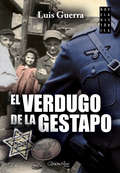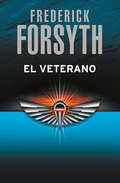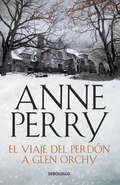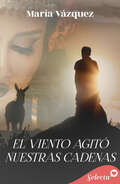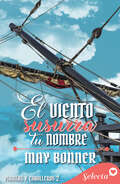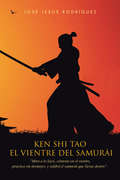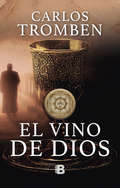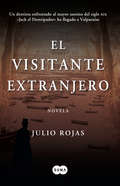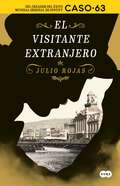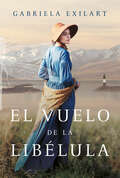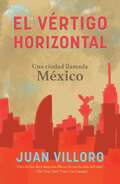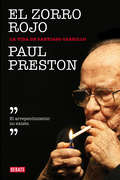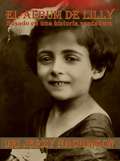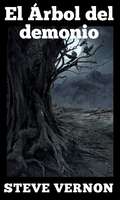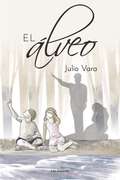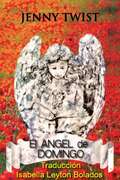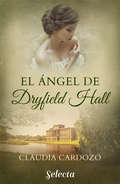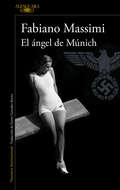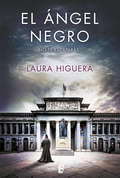- Table View
- List View
El veneno del Eunuco (Historia Incógnita)
by Juan KresdezUna obra precisa, eficaz, veloz, sumamente detallista con las costumbres de la época andalusí, Juan Kresdez ha logrado construir una novela que combina misterio, muerte y pasión, con el estilo tan singular que lo caracteriza.
El verano antes de la guerra
by Helen SimonsonLa luminosa historia de una familia, una ciudad y un mundo en sus últimos momentos de inocencia. «Una novela para curar la ausencia de Downton Abbey.»The Washington Post El verano de 1914 es uno de los más bellos que se recuerdan en la idílica ciudad inglesa de Rye. Allí acaba de llegar Beatrice Nash con un gran baúl de libros, ansia de independencia y nuevas ideas que pocos en Rye asocian a una profesora de latín. En un descanso de sus estudios de medicina, Hugh Grange se encuentra también en la ciudad visitando a su tía Agatha, una verdadera institución local que se ha jugado su cuidadosamente construida reputación con la contratación de la joven maestra. Pero mientras Beatrice se prepara para descubrir una nueva vida, y quizá el amor, en esta pintoresca comunidad, el verano parece a punto de acabar y lo inimaginable está a punto de comenzar... La crítica ha dicho...«Memorable.»Daily Mail «Un libro con un precioso envoltorio que se convierte en una historia de dignidad y coraje... Simonson tiene una mirada observadora y un don para la comedia... Los seguidores de Downton Abbey suspirarán de placer.»Kirkus Reviews «Hay un resplandor nostálgico y cálidamente seductor en esta evocación de una ciudad unida que se ve rota y a la vez reforzada por el comienzo de la guerra... Una lectura envolvente y enormemente emotiva.»The Sunday Times «En el marco de una historia de amor en tiempos de guerra, Simonson captura a la perfección las contradicciones de la vida en una ciudad pequeña: los idílicos pasatiempos, los vecinos metomentodo, la insinuación de que existen secretos y verdades inconfesables... el resultado es un enorme disfrute y una lectura adictiva.»Entertainment Weekly «El dulce intercambio de bromas entre dos espíritus afines que se deslizan lentamente hacia el amor está tan delicadamente elaborado como una taza de porcelana china.»The Seattle Times «Cada una de sus páginas es un placer y una sorpresa.»The Buffalo News «El meticuloso detalle y la elegancia con la que de manera tan hermosa evoca la atmosfera de la época, solo son igualados por la profundidad emocional que hace que esta novela sea tan conmovedora como entretenida.»Sunday Mirror
El verdugo de Rothenburg: Traición en Rothenburg
by Werner Diefenthal y Martina NobleRothenburg, 1526 Matthias Wolf, el verdugo de Rothenburg, y su mujer Marie, han sobrevivido a un cobarde atentado y se han enamorado. Pero sus enemigos no descansan: no solamente quieren destruir la felicidad de los jóvenes enamorados, sino que preferirían ver muerta a la pareja. Para ello les servirá cualquier medida. Durante el mercado de primavera en Rothenburg, Matthias evita que el joven Markus, que robó por culpa del hambre unas salchichas enmohecidas, pierda la mano. Matthias se ve a él mismo como el adolescente que fue acogido unos años antes por Malachias, el anterior verdugo, y lo contrata como aprendiz. Al mismo tiempo, un asesino a sueldo planifica otra manera eliminar para siempre a Matthias y a Marie. Por orden del corregidor, el verdugo y su mujer, y acompañados por el médico Nikolaus von Brümme, se ponen en camino para visitar el lugar de nacimiento de Marie. Allí se ven obligados a enfrentarse a algunas sorpresas, mientras que la Inquisición tiene noticia de los acontecimientos ocurridos en Rothenburg.
El verdugo de Rothenburg: asesinato en Rothenburg
by Werner Diefenthal y Martina NoblePrimavera de 1526 Eckhard Steiner, el anterior y popular corregidor de Rothenburg, ha muerto. La mujer de su sucesor acusa a la criada Marie de haberlo asesinado mediante las artes de la brujería. Cuando Marie ya está de rodillas en el cadalso, Matthias Wolf, el verdugo de Rothenburg, pide la mano de la joven y bella mujer. A pesar del gran miedo que siente por el hombre más temido de la ciudad, Marie acepta la oferta. Juntos, Marie y Matthias intentan descubrir el trasfondo del asesinato y se ven atrapados en un torbellino de intrigas, malicia y asesinato. «Asesinato en Rothenburg»: una historia sobre la crueldad de una época pasada, pero también sobre la humanidad y la esperanza.
El verdugo de Rothenburg: la Inquisición en Rothenburg
by Martina Noble & Werner DiefenthalRothenburg, 1526 Después de enterarse de la verdad sobre su origen, Marie comienza a buscar junto con su marido pruebas para presentárselas al corregidor Bernhard Steiner. Pero entretanto, el único testigo que sabe la verdad, ha sido asesinado. Mientras Marie y Matthias están fuera, la Inquisición llega a Rothenburg bajo el mando del inquisidor Ferdinand von Ravensburg y asusta y amedrenta a toda la ciudad. Matthias se ve obligado por el inquisidor a ayudarlo a llevar a cabo las interrogaciones. Cuando el verdugo se niega a torturar a una niña se inicia una serie de acontecimientos que cambiarán la vida de Marie y Matthias para siempre.
El verdugo de la Gestapo (Historia Incógnita)
by Luis GuerraSoy Peter Berger, capitán de la Gestapo. Estoy en peligro. No sé bien quién soy, mi mente se niega a revelar mi pasado. Esta información es la única información que poseo. Desconcertado y asustado debo emprender la huida y descubrir mi identidad. Soy Peter Berger, capitán de la Gestapo en Múnich. Esta información puede parecer insuficiente para conocer a una persona, pero en mi caso es la única información que poseo. Me desperté en una habitación extraña rodeado de desconocidos. Mi mente se negaba a contestar a las preguntas más sencillas ¿Quién soy? ¿Dónde estoy? La única pista que me indica donde me encuentro son los carteles que empapelan los edificios. Un individuo aparece en todos ellos, un nombre se repite: Adolf Hitler.
El veterano
by Frederick ForsythEstos cinco relatos originales constituyen una obra impresionante, con ambientaciones que van desde Londres hasta Siena y desde la Segunda Guerra Mundial hasta el lejano Oeste. Todos confirman, si cabe, el reconocido talento del autor para narrar historias que subyugan totalmente desde la primera página, gracias a su perfecto sentido del ritmo, el giro inesperado y el suspense narrativos. Así pues, Forsyth vuelve a demostrarnos por qué está considerado como el maestro de su género.«Breves lecciones del maestro.»El Mundo
El viaje de acampada que cambió Estados Unidos: Theodore Roosevelt, John Muir, y nuestros parques nacionales (¡Arriba la Lectura!, Read Aloud Module 7 #2)
by Mordicai Gerstein Barb RosenstockNIMAC-sourced textbook
El viaje del perdon a Glen Orchy (Historias navideñas #Volumen)
by Anne PerryUn suicidio refleja la hipocresía de la alta sociedad victoriana. Despunta el invierno y en una espléndida casa rural inglesa se celebra una velada entre candelabros, ramilletes de muérdago y buen vino. En este escenario, nadie, ni siquiera la intuitiva aristócrata Vespasia Cumming-Gould, podría haber previsto una tragedia que ha sumido en brumas el ambiente festivo. La joven Gwendolen Kilmuir se ha suicidado, y todo el mundo culpa a Isobel Alvie, quien hizo un comentario amargo sobre el compromiso de la fallecida con un rico heredero. El misterio, sin embargo, envuelve la carta que Gwendolen escribió antes de dar fin a su vida. Isobel, que se siente culpable, parte hacia Escocia en compañía de su amiga Vespasia para entregar el documento a la madre de la fallecida, buscar el perdón y enmendar su funesta conducta. Durante el largo viaje Vespasia irá descubriendo algunos secretos sobre la víctima que la llevarán a comprenderla oscura verdad que se esconde tras la tragedia. La crítica ha dicho... «Anne Perry tiene la vista de un halcón y la presteza de garras necesaria para capturar la injusticia del crimen.» New York Times Book Review
El viento agitó nuestras cadenas
by María VázquezLlega un día en que un simple tintineo nos recuerda que es hora de romper las cadenas que nos impiden vivir. Sor Catalina es consciente de que la peor decisión que ha tomado en su vida es la de vestir los hábitos y convertirse en monja de clausura en un templo de la llama sagrada. Esperaba hallar un refugio para su alma y llevar a cabo una hermosa labor por la comunidad, lo que halla es soledad y aislamiento. Sus días transcurren iguales, uno tras otro, siguiendo la rutina impuesta, repasando los motivos que le llevaron a seguir tal camino; sin embargo, no puede volverse atrás y regresar a casa sin empañar la reputación de la familia y la propia. Encadenada a la vida del templo sueña cada día con ser libre. Manrique vive en un reino del norte. Es un soldado más que patrulla cerca de la frontera y vive encadenado a un pasado que le tortura. Cuando el Imperio declara la guerra a los reinos confederados parte voluntario a la batalla. En el fondo cree que no volverá con vida y que es justo que así sea; a punto está de morir en una emboscada, no obstante, el destino ha decidido que todavía no ha llegado su hora y que solo existe una persona que puede perdonar sus pecados: él mismo. Para ello deberá recorrer un largo camino y aceptar los errores cometidos, así como permitirse empezar de nuevo. Ambos acabarán por encontrarse e iniciar una huida a través del Imperio y los reinos confederados que cambiará para siempre sus vidas, un encuentro que quizá rompa las cadenas que ellos mismos se impusieron por causa de erradas decisiones del pasado. Unas cadenas que les mantenían prisioneros de sí mismos.
El viento susurra tu nombre
by May BonnerUn matrimonio de conveniencia con unas reglas muy claras y fáciles de cumplir..., o no tanto. Cuando el barco en el que viajan Amelia y Eleine es atacado, Amelia es capturada y acaba siendo vendida como esclava en Orán. Allí, Armand, un joven francés con fama de mujeriego, que está de visita en la ciudad, se compadece de ella y la compra con la intención de dejarla libre. Las cosas se complican cuando este debe regresar precipitadamente a su casa y, debido a un malentendido, ella es obligada a embarcar en el mismo barco que él. Armand ha recibido noticias de que si no llega casado a su casa, perderá su herencia. Así las cosas, Amelia accede a casarse con él y fingir que son un matrimonio de verdad en agradecimiento por lo que ha hecho por ella. Aunque desde el principio queda claro entre ellos que los sentimientos no tienen nada que ver en su acuerdo. ¿Podrán cumplir la regla que ellos mismos se han impuesto?
El vientre del samurái: Ken Shi Tao
by José Jesús RodríguezUna emocionante novela de aventuras que conjuga historia y ficción, y que reúne a los líderes más notables de la época para poner en boca de ellos los conocimientos más ancestrales de la sabiduría oriental. <P><P> Ken Shi, heredero del clan Fujiwara, solo tiene quince años pero ya desde niño ha sido sometido por parte de su maestro, el terrible general samurái, a un tortuoso adiestramiento para recibir la sabiduría del secreto del vientre. Ahora que Japón está bajo la amenaza del gran khan tártaro Öguedei, el emperador Toshito temeroso de la invasión, encarga a Ken Shi, que vaya al tártaro para firmar en su nombre un tratado de vasallaje con el amenazante invasor. Es así como el joven samurái se embarca con su padre en un viaje por mar y por tierra, a través de China y Mongolia. <P><P>Pero la desgracia le persigue, dejando a su paso un reguero de muertes hasta que queda solo y herido. Deberá enfrentarse a enormes peligros para cumplir con su honor, y para ello cuenta con el mejor aliado que un guerrero puede tener: la sabiduría del vientre. La novela, que revive a los líderes más notables de la época para que nos cuenten sus batallas, conjuga historia, ficción y sabiduría oriental, pero es al mismo tiempo el viaje iniciático de un joven hacia la pubertad y la madurez. <P><P>Desde la primera página rezuma sabiduría a través de los códigos samuráis, máximas y reflexiones de los maestros deljoven Ken Shi, del lama del Tíbet y de los líderes militares.
El vino de Dios
by Carlos TrombenEn la línea del Código Da Vinci y las novelas de la colección La Trama, esta novela representa un giro en el registro de Tromben. Janet Lang, escritora y periodista estadounidense, lleva años buscando a su hermana Kate, vista por última vez en Argentina. Experta en biología y fisiología vegetal, Kate ha dejado un rastro de datos y archivos de distintos países vinculados a la industria vitivinícola: Francia, España, Portugal, Israel, Australia, Argentina y Chile. Janet entrevista a enólogos, policías, funcionarios de aduanas, dueños de hostales por donde su hermana pasó antes de partir en busca de un secreto que se va develando en cada capítulo. A medida que avanza la trama se suceden obstáculos, pistas falsas, advertencias, relacionados con el cultivo de una cepa singular llamada el vino de Dios, el mismo que bebieron en la última cena Jesucristo y sus apóstoles y cuya conservación ha marcado secretamente la historia de la humanidad.
El visitante extranjero
by Julio RojasNovela policial y de aventuras ambientada en el puerto de Valparaíso en 1889 y que pone al primer dentista forense tras las huellas de Jack el Destripador Enero, 1889. Valparaíso es la ciudad más vertiginosa y cosmopolita de Sudamérica. Vapores de todo el mundo traen al puerto los adelantos del siglo, pero también sus amenazas y sombras. En el corazón de esta sociedad efervescente, una serie de atroces y misteriosos crímenes parecen indicar que el mal ha desembarcado en el puerto. Un dentista forense, el primero en el continente, usará su ciencia para perseguir al homicida serial. Lo que no sabe es que deberá enfrentarse al femicida más célebre que, escapando del asedio de Scotland Yard, ha arribado a América. La prensa londinense lo ha apodado «Jack el destripador». El doctor Nolasco Black y un grupo de mujeres intentarán atraparlo antes de que prosiga su viaje de muerte o de que ellos se conviertan en sus próximas víctimas.
El visitante extranjero
by Julio RojasEn Valparaíso en 1889, el primer dentista forense va tras las huellas de Jack el Destripador. Enero, 1889. Valparaíso es la ciudad más vertiginosa y cosmopolita de Sudamérica. Vapores de todo el mundo traen al puerto los adelantos del siglo, pero también sus amenazas y sombras. En el corazón de esta sociedad efervescente, una serie de atroces y misteriosos crímenes parecen indicar que el mal ha desembarcado en el puerto. Un dentista forense, el primero en el continente, usará su ciencia para perseguir al homicida serial. Lo que no sabe es que deberá enfrentarse al femicida más célebre que, escapando del asedio de Scotland Yard, ha arribado a América. La prensa londinense lo ha apodado «Jack el destripador». El doctor Nolasco Black y un grupo de mujeres intentarán atraparlo antes de que prosiga su viaje de muerte o de que ellos se conviertan en sus próximas víctimas.
El vuelo de la libélula
by Gabriela ExilartUn secreto familiar llevará a Clara al fin del mundo, donde cree que se halla el principio de su historia. Una madre que vive en otro plano, una caja que guarda un secreto y un nombre impulsan a Clara a buscar su pasado. El buque Monte Cervantes la lleva al fin del mundo para hallar a un anarquista preso por sus ideales en el penal de Ushuaia. Un naufragio, un crimen y el encuentro con un hombre de ascendencia yagan la pondrán a prueba. Nada será fácil, la señalarán con el dedo, la acusarán de delitos, sufrirá humillaciones y tendrá que demostrar su inocencia. Y allí, en esa geografía hermosa y gélida, Clara descubrirá su origen y quizás también el amor. El vuelo de la libélula es una poderosa novela histórica y romántica, con fascinantes toques de realismo mágico, que narra la fortaleza de una mujer durante el hundimiento del crucero Monte Cervantes en las aguas heladas del canal Beagle.
El vértigo horizontal
by Juan VilloroCon mirada atenta y pulso firme, Juan Villoro se desdobla en periodista, transeúnte, comprador de plumas, adulto nostálgico, padre responsable, brigadista de emergencia, y nos ofrece un testimonio de las múltiples experiencias que la capital mexicana depara a todos y cada uno de sus agremiados. Convencido de que quizá la Ciudad de México no sea el lugar más aconsejable para vivir, pero también de que es tan intrincada y apasionante que resulta imposible abandonarla, Villoro propone este libro escrito desde la devoción del urbanita recalcitrante y maravillado que se despliega como un rompecabezas infinito: los atajos viales, el cine de luchadores, los héroes nacionales, el comercio tepiteño, la tramitología gubernamental, el enigma de las vulcanizadoras, las incontables multitudes, la ingesta de chile, los templos ancestrales. El autor también narra ciertos pasajes autobiográficos, como el último paseo con su abuela o el recuerdo de la colonia de casas abandonadas donde creció. Ya sea desde la propia experiencia o a través de la escucha y la investigación de las realidades ajenas, Juan Villoro compone un gran fresco del caos entrañable y eterno que conforma la capital mexicana. El espacio en el que ya nada cabe, pero nada nunca sobra: Chilangópolis.
El zorro rojo: La vida de Santiago Carrillo
by Paul PrestonLa biografía del líder comunista español Santiago Carrillo, figura fundamental del siglo XX El fallecimiento de Santiago Carrillo el 28 de octubre de 2012 puso fin a noventa y siete años vividos intensamente y en primera fila de la política. Hijo de Wenceslao Carrillo, dirigente socialista, su primer recuerdo era visitar a su padre en prisión. Aún adolescente participó en la huelga de 1934 y pasó por la cárcel, donde se radicalizó. Tras un viaje a Moscú logró unificar las juventudes del PSOE y del PCE en vísperas de la Guerra Civil, para a continuación unirse a los comunistas. Durante la guerra ocurrió uno de los episodios más oscuros de su vida, la matanza de presos rebeldes en Paracuellos, cuando era responsable de seguridad en Madrid. Tras la guerra permaneció treinta y ocho años exiliado, siempre en la dirección comunista, que ejerció con mano de hierro. Su giro hacia el eurocomunismo y su papel fundamental en la Transición aliviaron su figura. Paul Preston, el historiador más importante del siglo XX español, autor de las biografías definitivas de Franco y de Juan Carlos I, dedica su nuevo libro a uno de los personajes más fascinantes e inasibles de la historia reciente de nuestro país. La crítica ha dicho... «...su demoledor y controvertido retrato del principal líder de la oposición antifranquista arrancará sarpullidos.» El País
El Álbum de Lilly: Basado en una historia verdadera
by Uri Jerzy NachimsonEsta inusual novela escrita por mí, hijo de un sobreviviente del holocausto, está basado en las dificultades y tribulaciones de mi familia que tuvieron lugar entre la primera y la segunda guerra mundial. Es un desgarrador cuento del viaje desde las esperanzas y sueños de la juventud al filo de la desesperación y eventual muerte. La historia es sobre el amor ardiente, la futilidad de la guerra y el exterminio de personas inocentes por causa de sus diferentes creencias. Basado en una historia real, me tomó tres años de investigación e incontables viajes a Polonia. No es un libro fácil de leer, y está orientado hacia lectores adultos.
El Árbol del demonio
by Steve VernonLas raíces de la maldad corren más profundo de lo que nunca habían imaginado. Lucas Sawyer y su esposa Tamsen se encuentran aislados en el corazón de un salvaje bosque a mediados del siglo diecinueve. Los rescatará Jonah Duvall, un misterioso leñador que habita en ese extraño valle con su esposa Jezebel y su hijo Cord. Por encima de todo se encuentra el Árbol del demonio, un enorme y malvado pino de banks que los ha convocado a ese valle para alimentarse de sus emociones colectivas y sus descendientes antinaturales. Parte del espíritu de la tierra, parte del demonio anciano: el árbol los está cultivando. Los personajes están unidos en un apretado lazo de destino innegable. Cuando llega el invierno, deben enfrentar la furia impía del árbol en un final absolutamente horrible. El Árbol del demonio es una historia que los llevará a lo más profundo del corazón de un horror inimaginable. Lo que algunas personas dicen sobre Steve Vernon y El árbol del demonio "Un viaje fascinante hacia una oscuridad inimaginable, El árbol del demonio presenta a Steve Vernon en el apogeo de su poder, resultando en una novela provocadora y profundamente inquietante que nunca olvidarás". - Greg F. Gifune, autor de THE BLEEDING SEASON "El árbol del demonio es una historia aterradora del hombre frente a la naturaleza en todos los sentidos. Vernon ha escrito una historia de asesinato, infidelidad, muerte y depravación. Llena de horror y oscuridad, una historia sobrenatural como ninguna otra". - DARK RIVER PRESS "Si buscas una historia que te asuste, El árbol del demonio es una gran lectura". - SIZZLING HOT BOOK REVIEWS "Una historia bien escrita que atraerá a los fanáticos del realismo grotesco y mágico. Debes tener un estómago duro para poder manejar esta historia: OPINIONS OF A WOLF "Con un terror corporal al estilo de Cronenberg, una trama secundaria tipo Wendigo y un árbol del demonio que daría a la vegetación en la orig
El álveo
by Julio Vara¿Recuerdas que te encantaba bailar? <P><P>En la España de la preguerra, sentados junto a un pequeño riachuelo, dos niños consagran su infancia a descifrar los entresijos de un mundo que, a duras penas, logran comprender. <P>Así, refutando la finitud de una inocencia casi perdida, cogidos de la mano frente a todos los vientos que la vida les trae, se hacen el juramento de no malgastar ni un instante de su tiempo ni de su sangre. <P>Es esta una historia sobre la familia, sobre la música y la danza, sobre el campo, los azadones, los rumbos marinos; sobre el incierto abismo que abre ante nuestros pies el porvenir. <P>Pero, por encima de todo, habla de un cariño tan de hierro, tan fuerte, que ni el paso del tiempo, ni la guerra, ni la misma muerte, pudieron destruir.
El ángel de Domingo: La historia de una inglesa que se muda a la España de Franco basada en vivencias reales
by Jenny TwistAngela llega a un pueblo lejano en medio de las montañas españolas y es tan alta, delgada y pálida que los lugareños creen que es un fantasma, un hada o un mantequero aterrador que, por las noches, les chupará toda la grasa de los huesos. No obstante, Domingo no lo cree así. «Soy Angela», le dijo cuando se conocieron, pero él creyó haber escuchado «Soy un ángel». Más tarde, se da cuenta de que, en realidad, ella solo le había dicho su nombre, pero para entonces todos ya la conocían como el ángel de Domingo. Esta es su historia de amor, pero no se reduce solo a ello, también es la historia de los lugareños del pueblo: la indomable doña Rosalba, la dueña de la tienda, la médica, la partera y la sabia del pueblo, quien siempre está enterada de todo lo que sucede; Guillermo, el alcalde, cuyos delirios de grandeza provienen de una infancia pobre; y Salva Panadero, quien arriesgó su vida y libertad por darle pan a los niños que se morían de hambre. Los acontecimientos de esta historia están basados en las vivencias reales de los lugareños de Los Pueblos Blancos del sur de España. Retratan la lucha constante que atravesaron en un intento por mantener viva a su comunidad a través de los años de guerra y opresión bajo el régimen de Franco.
El ángel de Dryfield Hall
by Claudia CardozoEl ángel de Dryfield Hall, una novela que cautivará al lector hasta la última página. El viaje de una heroína valiente que enfrenta lo desconocido y encuentra el verdadero amor en el lugar más inesperado. Julia Simmons ha visto su vida transcurrir en un poblado de la campiña inglesa. Ella y su madre subsisten tan bien como pueden gracias a su trabajo como maestra de escuela y, aunque siempre ha anhelado conocer el mundo más allá de los límites del pueblo, ha aprendido a resignarse a su suerte. Lo único que hace tambalear sus propósitos es la fascinación que siente por Dryfield Hall, la antigua mansión abandonada que ve cada día y acerca de la cual teje mil y una historias. Dryfield Hall no ha recibido a nuevos habitantes desde hace veinte años, pero un día se anuncia que el actual dueño de la mansión y su familia irán pronto a vivir allí de formaindefinida. Julia y su madre se ven involucradas en los preparativos para devolver a la mansión parte de su antigua gloria. Ninguna de ellas imagina, sin embargo, que la llegada de los enigmáticos Barsham alterará sus vidas hasta llegar a un punto sin retorno. El señor de Dryfield Hall, además, entablará una curiosa amistad con Julia, provocando en ella emociones hasta entonces desconocidas. El misterio, la intriga y el deseo forman parte de esta novela que nos relata una apasionada historia de amor al tiempo que nos sumerge en las más complejas y extremas emociones humanas.
El ángel de Múnich
by Fabiano MassimiEL THRILLER HISTÓRICO DEL AÑO N.º 1 EN VENTAS EN ITALIA ¿Qué se esconde detrás de la muerte de Geli Raubal, sobrina de Hitler y su único verdadero amor? «Un thriller que podría haber escrito Ken Follett.»Paola Sorge, Il Venerdì «Preciso, imaginativo y brillante.»Donato Carrisi, Il Corriere della Sera Múnich, 1931. Falta poco para que unas históricas elecciones otorguen el poder a los nazis. Los comisarios Siegfried Sauer y Mutti Forster se enfrentan al aburrido turno del sábado cuando el director de la policía criminal les avisa de un suceso en el número 16 de Prinzregentenplatz, la vivienda de Adolf Hitler. Su sobrina, Geli Raubal, ha sido hallada muerta. Todo apunta a un suicidio, pero Sauer no está convencido. Algunos testigos se contradicen y ha desaparecido la pequeña esvástica de oro que la joven siempre llevaba al cuello. Sus sospechas son confirmadas cuando el mismo Hitler le pide que encuentre al culpable y van apareciendo notas firmadas con una misteriosa H. Tras años de estudio de bibliografía y fuentes inéditas, Fabiano Massimi destapa en este aclamado y revolucionario thriller literario las tramas y las personalidades históricas que protagonizaron un caso real que estuvo a punto de cambiar el curso de la Historia. La crítica ha dicho...«De la mano de un escritor que conjuga la erudición de un historiador, las fuentes de un periodista y la capacidad narrativa de un novelista, [...] El ángel de Múnich se sumerge en la historia antes de que se escribiera con mayúsculas.»Juan Losa, Público «Una novela muy interesante que recrea muy bien el ambiente fatídico de aquella época y que, además, tiene la gracia de darnos una visión de los primeros días del nazismo, de la creación de aquel sistema fanático, del culto a la personalidad que consiguió provocar Hitler y cómo todos los que le rodean intentan protegerle, justificarle y defenderle de miradas ajenas.»Benjamín Prado, Todos somos sospechosos (Radio 3) «Un thriller que podría haber escrito Ken Follett [...] Una trama adictiva y llena de giros.»Paola Sorge, Il Venerdì «El ángel de Múnich se basa en una realidad histórica, pero al mismo tiempo la supera gracias a aquello que la Historia nunca podrá tener: un narrador. Y en este caso, un narrador preciso, imaginativo y brillante.»Donato Carrisi «Una novela que arroja luz sobre la escandalosa pasión de Hitler por su sobrina. En los Juicios de Núremberg de 1946, Hermann Göring declaró que tras la muerte de Geli todo rastro de humanidad en Hitler desapareció.»Igor Ruggeri, Gente «Lo tiene todo para convertirse en un éxito: una historia olvidada por la Historia, un estilo literario, atmósferas cinematográficas y el ritmo voraz de las series de televisión.»Gian Paolo Serino, Il Giornale «Un nuevo autor y una historia con un ritmo trepidante.»Roselina Salemi, Io Donna «Un thriller emocionante que devuelve a la vida uno de los casos sin resolver más oscuros de la Historia.»Bruna Magi, Libero «La muerte que pudo haber frenado a Hitler. [...] Un experimento social del autor: transformar al lector en un ciudadano alemán de la época para que viva y sienta los motivos, de otra manera inexplicables, del ascenso del dictador. [...] Un thriller que no deja hueco para la fantasía.»Marcello Cocco, L'Unione Sarda «Un testimonio conmovedor que honra a la primera víctima de la propaganda nazi: Geli Raubal.»Milanonera.com<P
El ángel negro
by Laura HigueraUn thriller magistral en torno a las «pinturas negras» de Goya. Una novela excelentemente documentada que combina una trama policíaca contemporánea con una trama argumental que transcurre en la Venecia del siglo XIX. Madrid, 2016. Un hombre es asesinado en el Museo del Prado. El cadáver, salvajemente mutilado, yace en la sala de las «pinturas negras» de Goya, y una cuchillada furiosa atraviesa de arriba abajo el lienzo Saturno devorando a su hijo, una de las obras maestras de la colección. La policía se enfrenta a un caso complicado y de enorme repercusión mediática. Venecia, 1873. Durante una fiesta en un palazzo del Gran Canal, una misteriosa joven llamada Alessandra Abad oye hablar por primera vez de catorce extrañas pinturas halladas en las paredes de la Quinta del Sordo, realizadas por un Goya enloquecido, y de los esfuerzos de un experto del Prado por extraerlas de los muros mediante la técnica del strappo... Así arranca este thriller en dos tiempos, entre la actualidad y un pasado olvidado, en el que el inspector Bernardo Vera y la experta en arte Ada Adler emprenderán, juntos, una investigación en la que irán tropezando una y otra vez con la leyenda de un lienzo enigmático y oculto, el inquietante retrato de una figura oscura y alada...
